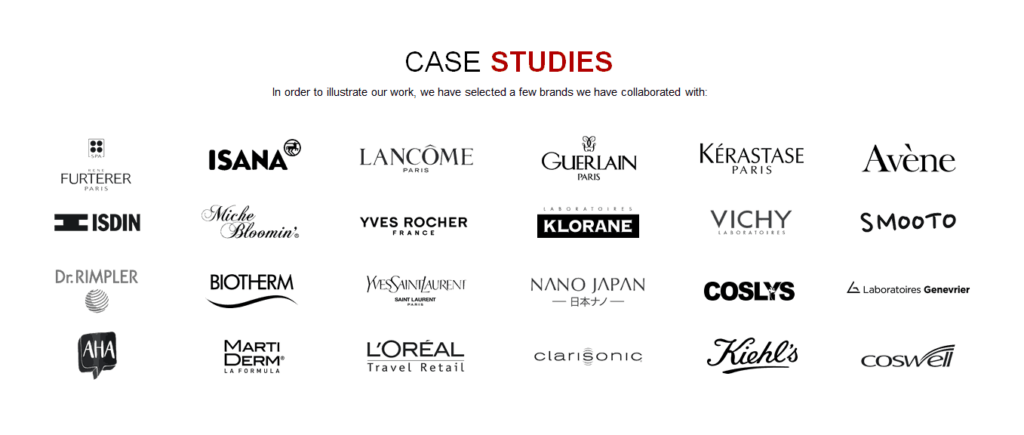Do you ever feel overwhelmed while shopping for cosmetics online, unsure how the products will look, or work on your own skin? You’re not alone – Many felt this too and realized it’s a challenge facing many shoppers in today’s digital age.
China is at the forefront of utilizing virtual reality (VR) technology to revolutionize the cosmetics shopping experience. By integrating VR into their retail spaces, Chinese cosmetic brands are able to provide customers with a unique and immersive shopping journey.
Through VR headsets, customers can virtually try on various makeup products, experiment with different looks, and even receive personalized beauty recommendations.
This innovative approach not only enhances the overall shopping experience but also allows customers to make more informed decisions before purchasing cosmetics. By leveraging VR information technology, China is redefining the way people shop for cosmetics, making it more interactive, convenient, and enjoyable.
Intrigued? Keep reading to find out more about China’s cutting-edge VR use within the cosmetics industry.
The Rise of Virtual Reality in the Chinese Cosmetics Industry
China’s luxury market is experiencing significant growth, particularly in the cosmetics industry, thanks to the integration of virtual reality (VR) technology. This innovative approach is revolutionizing the shopping experience by offering virtual try-ons, allowing customers to engage with and immerse themselves in products before making a purchase.

In 2016, Alibaba made waves in the retail industry by introducing a comprehensive VR shopping experience video, showcasing China’s forward-thinking adoption of VR technology in cosmetics shopping. This development adds an extra level of convenience for modern consumers, particularly when buying beauty products online.
Such tactics take into account personal preferences and simplify purchasing decisions for customers navigating vast product arrays.
Through this transformation happening within our very own screens, we see how technology revolutionizes traditional beauty retail practices and propels consumer-brand interactions on a dynamic platform.
Benefits of virtual reality in enhancing the shopping experience
By creating immersive digital environments, VR surpasses traditional e-commerce platforms and provides consumers with interactive features like virtual beauty consultations and try-on experiences.
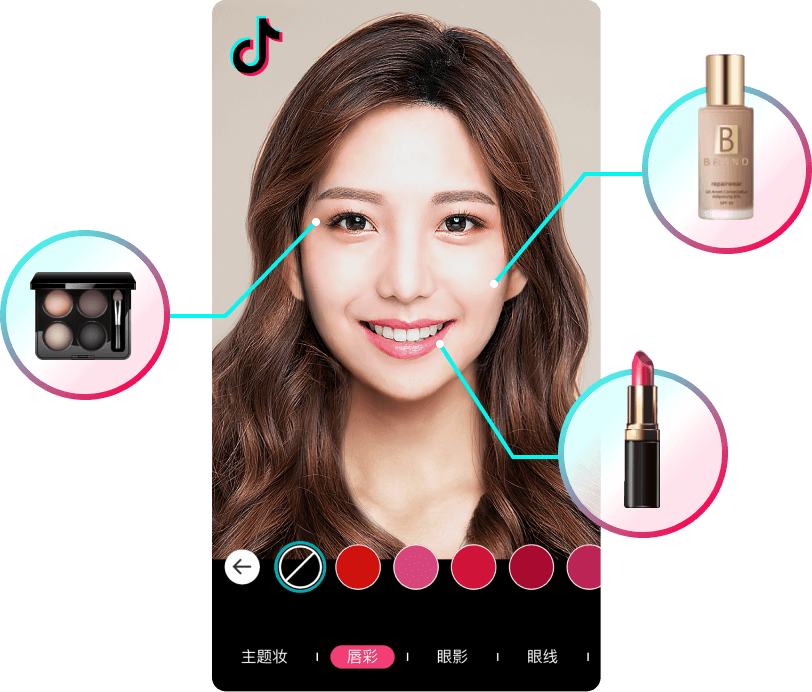
This not only piques customers’ interest but also increases their confidence in making online purchases. Moreover, VR allows for captivating store environments to be accessed remotely in mixed reality, blending the real-time interaction of physical retail with the convenience of online shopping.
With this boundary-pushing technology at play, we’re witnessing how virtual reality is revolutionizing China’s cosmetics sector while boosting online sales for beauty brands globally. Cosmetics is actually one of the key industries for VR technology that China aims to develop.
Additionally, coupled with augmented reality’s potential in social commerce sales enhancement, retailers are granted another avenue to engage their audience effectively.
How China is Utilizing Virtual Reality in Cosmetics Shopping
China is revolutionizing the cosmetics shopping experience by utilizing virtual reality for beauty consultations and offering customers immersive virtual try-on experiences.
Virtual reality beauty consultations
Virtual reality beauty consultations are taking the cosmetics industry by storm, particularly in China with its innovative manufacturing technology and massive luxury market.
Chinese companies are utilizing this advanced technology to provide personalized beauty advice to customers without them leaving their homes. These consultations rely on VR technology to create an immersive experience that closely mimics a real-life consultation.
Customers can share their skin concerns and goals with beauty experts, who then offer tailored recommendations using products available for purchase online.
This service is being embraced in China’s largest luxury market, where consumers appreciate the accessibility, convenience, and personalized nature of these virtual services. As referenced in Alibaba’s “First complete VR shopping experience” video from 2016, China has been at the forefront of integrating VR into various industries, including cosmetics.
The popularity of live-streaming e-commerce platforms in China indicates that consumers value interactive and immersive shopping experiences provided by VR. Virtual reality beauty consultations act as a bridge between brands and consumers, fostering a relationship built on trust through personalized interactions.
Additionally, the growth projection of augmented shopping apps reaching USD 7.6 billion in 2022 reflects a growing consumer interest in advanced shopping technologies such as VR.
Virtual try-on experiences for cosmetics
This innovative technology, virtual try-on experiences for cosmetics, is revolutionizing the way consumers shop for beauty products in China. Let’s dive into how China is utilizing the virtual reality industry (VR) to enhance the cosmetics shopping experience:
- Virtual try-on tools: Beauty brands in China are using virtual reality technology to offer customers immersive and interactive try-on experiences. Through these tools, users can virtually apply makeup products and get a realistic preview of how the cosmetics will look on their faces.
- Personalized recommendations: With VR technology, beauty brands can offer personalized product recommendations by analyzing data and utilizing artificial intelligence. This allows for virtual try-on experiences that cater to each customer’s skin tone, features, and preferences.
- Enhancing online shopping: Virtual try-on experiences revolutionize the shopping experience by enabling customers to test cosmetics virtually, eliminating the need for physical try-ons. This innovative technology saves time and addresses concerns related to hygiene and allergic reactions.
- Boosting sales conversion rates: Studies have found that including virtual try-on experiences in the cosmetics shopping process can greatly improve sales conversion rates. By allowing customers to see themselves wearing various products, their confidence in making a purchase decision is boosted.
- Seamless integration: Many popular e-commerce platforms in China have embraced VR technology to enhance the shopping experience. They have integrated virtual try-on experiences into their platforms, making it convenient for users to access these tools while browsing beauty products.
- Real-time feedback: Virtual try-on experiences in the cosmetics industry allow consumers to try on products virtually and receive feedback from friends or social media communities in real-time. This interactive feature enhances the shopping experience by adding a social element, making it more engaging and enjoyable for users.
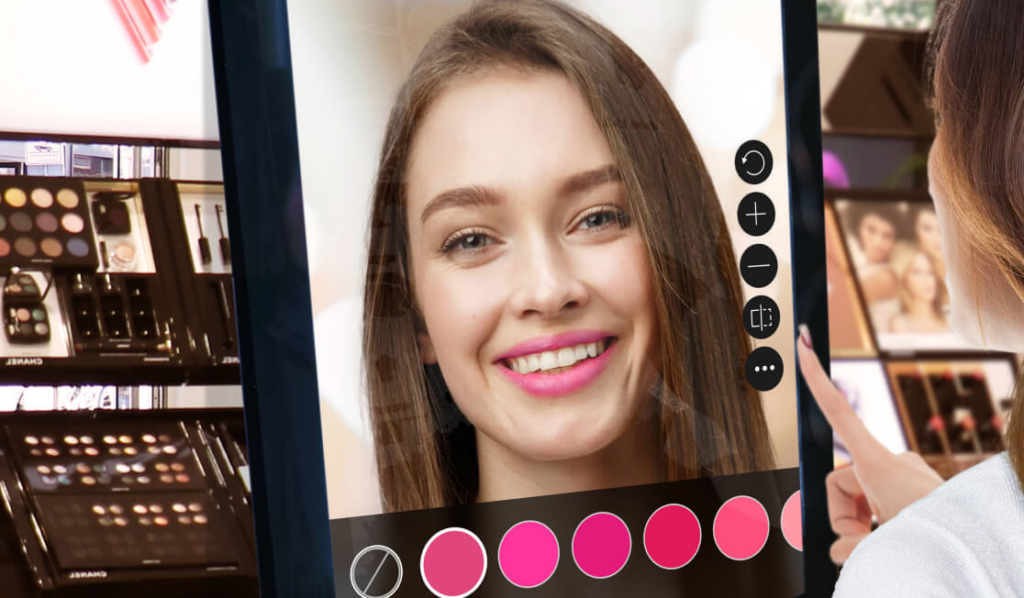
Advancements in Virtual Reality Technology in China
VR key technologies in China are advancing at a rapid pace, with the integration of artificial intelligence and personalized recommendations revolutionizing the way consumers experience cosmetics shopping.
Integration of artificial intelligence
In the fast-paced world of Chinese cosmetics shopping, the integration of artificial intelligence (AI) is revolutionizing the way consumers interact with beauty products.
By combining AI technology with virtual reality (VR), companies are able to create personalized recommendations and immersive experiences that cater to each individual’s unique preferences.
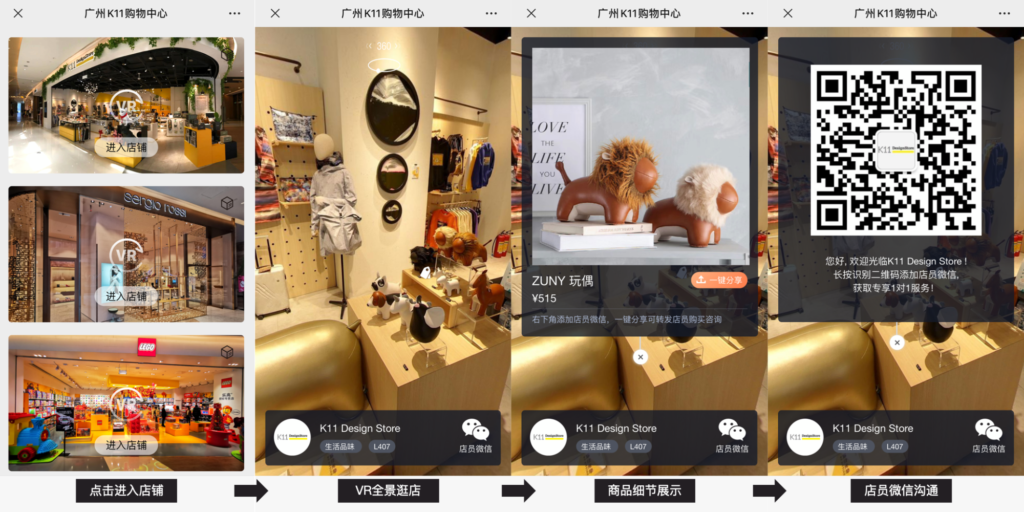
The combination of AI and VR has the potential to greatly improve the shopping experience and increase customer satisfaction. Research has shown that integrating these technologies into different sectors, including art education, can lead to better learning outcomes and increased efficiency.
China’s emphasis on digital innovation and advancements in VR technology solidify its position as a leader in using AI tools for human-machine interaction.
This cutting-edge integration is expected to transform the future of Chinese cosmetics shopping, providing consumers with a more immersive and personalized experience.
Personalized recommendations
VR adoption in China is revolutionizing the cosmetics shopping experience by providing personalized recommendations.

Advancements in VR technology have allowed Chinese consumers to receive personalized suggestions for cosmetic products based on their preferences and needs.
By using immersive VR headset experiences, shoppers can explore a wide range of products that are tailored specifically for them. This level of personalization enhances the overall shopping experience, making customers feel valued and understood.
As China continues to embrace VR innovation and its digital economy grows, personalized recommendations are becoming an important aspect of the cosmetics shopping landscape in the country.
Virtual Reality on Social Media
The impact of virtual try-on for cosmetics on Chinese social media platforms like WeChat and Douyin has been quite significant. Virtual try-on technology allows users to virtually apply makeup and try different cosmetic products without physically trying them on.
This has revolutionized the cosmetic industry in China, providing users with a convenient and immersive way to test products before making a purchase.
On WeChat, many cosmetic brands have integrated virtual try-on features into their official accounts. Users can access these features, try different makeup looks, and even purchase the products directly within the app. This has not only enhanced the user experience but also increased user engagement and conversion rates for these brands.
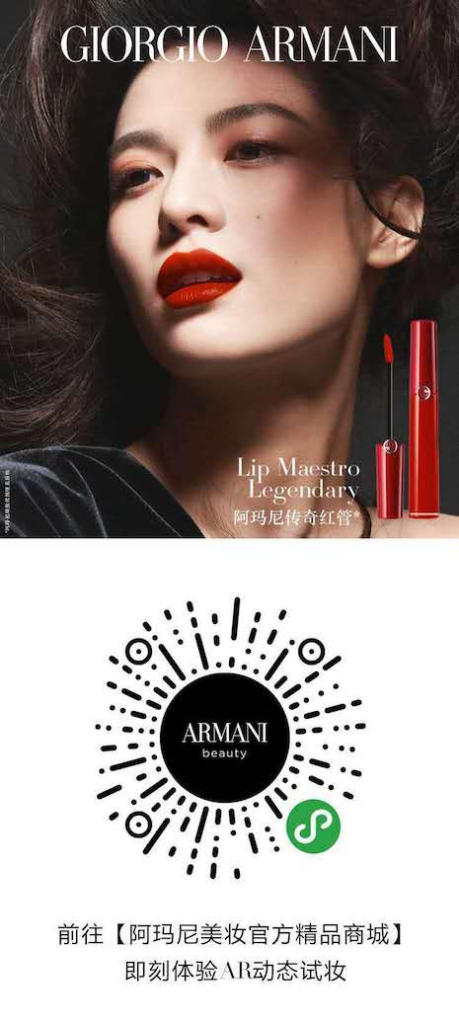
Douyin, also known as TikTok in other countries, has also seen a surge in virtual try-on content. Many beauty influencers and brands create short videos showcasing different makeup looks using virtual try-on filters. These videos often go viral, attracting a large audience and driving interest in the featured products.
Overall, virtual try-on technology has had a significant impact on the cosmetic industry in China, providing users with a fun and interactive way to explore and purchase products. It has also become an effective marketing tool for brands to reach a wider audience and increase sales.
Case Study
One example of a famous cosmetic brand that has used virtual reality (VR) in China is L’Oréal. L’Oréal is a well-known international beauty company that has incorporated VR technology into its marketing strategies in China.
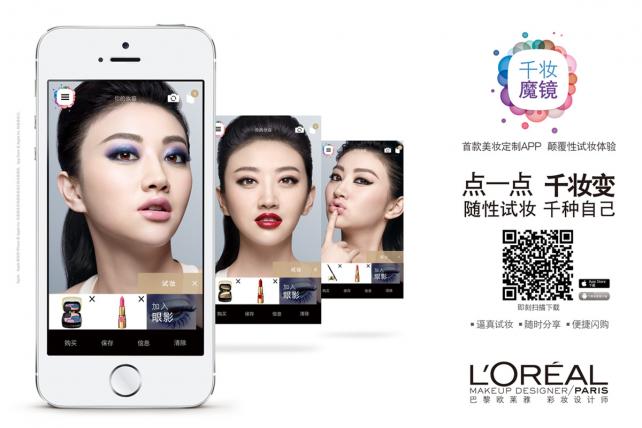
In 2017, L’Oréal launched a VR campaign called “Magic Mirror” in China. This campaign allowed consumers to virtually try on different makeup products and experiment with various looks using VR headsets.
By using this technology, L’Oréal aimed to enhance the shopping experience for its customers and provide them with a more interactive and personalized way to explore their cosmetic products.
The “Magic Mirror” campaign was a success, as it attracted a lot of attention and engagement from consumers. It allowed them to virtually try on makeup without the need for physical products or visiting a store.
L’Oréal’s use of VR technology in China helped to create a unique and immersive experience for customers, ultimately driving brand awareness and sales.
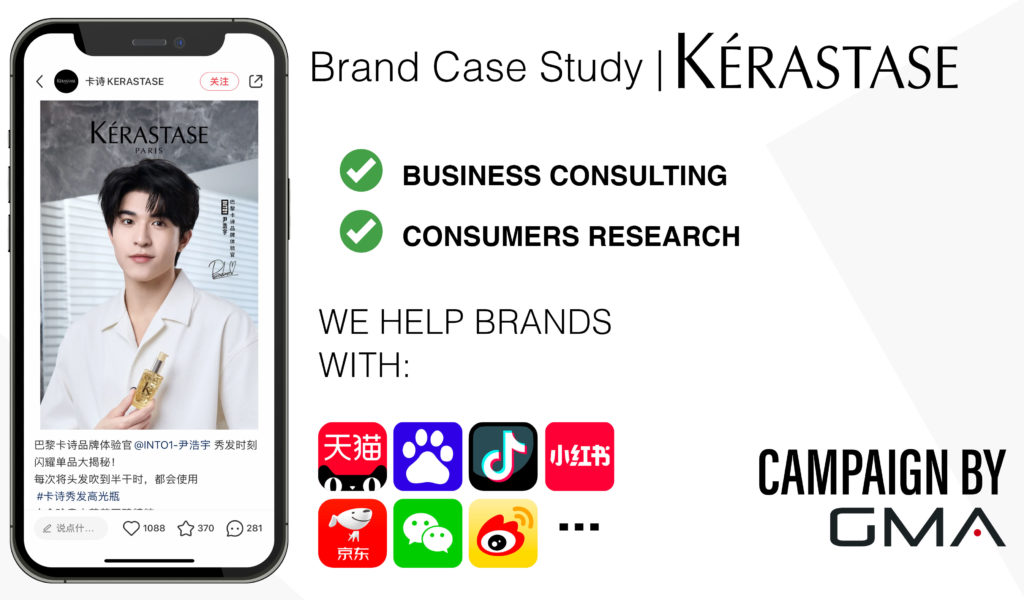
The Future of Virtual Reality in Chinese Cosmetics Shopping
The future of virtual reality in Chinese cosmetics shopping holds immense potential for expansion and innovation, with opportunities to further integrate VR technology into the beauty industry and overcome potential challenges along the way.
Expansion of virtual reality in the beauty industry
One significant development that cannot be ignored is the expansion of virtual reality (VR) in this sector.
In China, augmented reality technology is revolutionizing cosmetics shopping experiences in ways we could have only imagined before.
China has emerged as a leader in VR and AR innovation, particularly in the retail sector. Many Chinese malls have retail stores that offer immersive VR experiences.
In 2016, Alibaba, one of China’s largest e-commerce platforms, showcased a complete VR shopping experience that gained a lot of attention for its futuristic approach.

Today, Chinese consumers can use VR headsets to virtually try on makeup products and see how they would look without physically touching or trying them. This adoption of VR technology has not only improved the shopping experience for customers but also contributed to China’s position as the largest luxury market globally.
With the integration of AR and VR in cosmetics shopping, buyers can now interact with and visualize products in a virtual environment, making the experience more immersive than ever before.
As technology continues to evolve rapidly, it’s clear that virtual try-on experiences and AI-generated beauty products are reshaping the industry.
Potential challenges and opportunities
Virtual reality (VR) presents potential challenges and opportunities in the Chinese cosmetics shopping industry. One of the main challenges is ensuring widespread adoption and acceptance among consumers.
The use of VR technology in shopping experiences has become popular, but some consumers may still be unsure about it. Marketers can take advantage of this by educating consumers about the benefits of VR in enhancing their cosmetics shopping experience.

Staying ahead of competitors is another challenge, as VR technology is constantly evolving.
Businesses need to stay updated on new advancements and features to improve the shopping experience. However, this also provides opportunities for businesses to stand out by offering unique VR experiences or integrating other emerging technologies, like AI.
Furthermore, integrating virtual reality into existing retail infrastructure can also pose logistical challenges. From setting up VR stations in physical stores to ensuring seamless integration with online platforms, companies may face technical hurdles during implementation.
However, overcoming these challenges allows businesses to create immersive experiences that boost sales conversion rates and increase customer engagement.
We are your local partner in China! Contact us!
China is leading the way in using virtual reality (VR) to revolutionize the cosmetics shopping experience. With advancements in VR technology and its integration into beauty consultations and virtual try-on experiences, Chinese consumers are able to explore and purchase products in immersive ways.
As the VR industry continues to grow, luxury brands have an opportunity to engage with the Chinese market and provide unique, interactive shopping experiences. By embracing VR technology, China showcases its commitment to innovation and staying ahead of global retail trends.
Overall, China’s use of virtual reality market is transforming how cosmetics are bought and sold, creating a more engaging and personalized experience for consumers.

In the Gentlemen Marketing Agency (GMA), we are 70+ digital experts passionate about social media in China. We love to build impactful strategies and content to reach the Chinese on WeChat, Little Red Book, Douyin, Weibo, and many more.
If you have a specific project in China, you should include social media wisely. You should start with branding before moving to e-commerce.
You can contact us to find the most suitable option for your project in China! Let’s start today!
